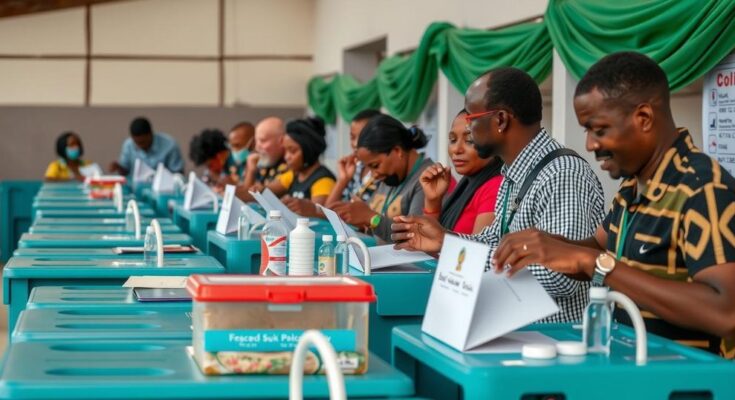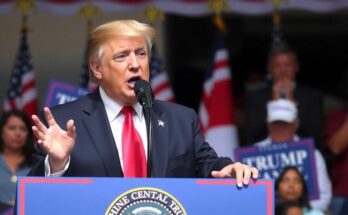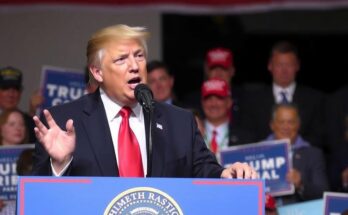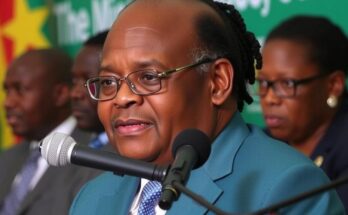Ghana is set to elect a new president as incumbent Nana Akufo-Addo steps down. Former President John Mahama is challenging Vice-President Mahamudu Bawumia, who could become the first Muslim leader in Ghana’s history. With nearly 19 million registered voters, the election also includes parliamentary seats across 275 constituencies. Voters must decide amidst economic struggles, including inflation and unemployment.
Election day has officially arrived in Ghana, marking a pivotal moment in the nation’s political landscape with voters set to choose a new president. Incumbent President Nana Akufo-Addo steps down after serving the maximum two terms, paving the way for potential candidates. Former President John Mahama seeks to reclaim the presidency for the National Democratic Congress (NDC), facing off against current Vice-President Mahamudu Bawumia of the New Patriotic Party (NPP). Bawumia, if victorious, would make history as the first Muslim president of Ghana.
In addition to Mahama and Bawumia, the election features candidates such as businessman Nana Kwame Bediako and Alan Kyerematen, who left the NPP last year. Approximately 19 million Ghanaians are registered to cast their votes, although the election is marred by the recent death of the only female presidential candidate, Akua Donkor. Despite efforts to promote female representation in politics, her name will still appear on the ballot due to the disqualification of her successor.
The election not only determines the presidency but also involves voting for members of parliament across 275 constituencies. Since Ghana’s return to multi-party politics in 1992, the presidency has consistently been contested between the NDC and NPP, with no party having secured more than two consecutive terms.
Voters will have a 10-hour window to submit their ballots, with polls opening at 07:00 GMT and closing at 17:00 GMT. Should no candidate obtain a majority of over 50 percent, a run-off election will ensue between the top two candidates later in December. Both Mahama and Bawumia, in their concluding campaign statements, emphasized their respective administrations’ performances and visions for Ghana amid ongoing economic challenges.
Ghana’s political atmosphere is deeply influenced by pressing economic issues, including soaring inflation rates and a significant debt crisis affecting livelihoods. Following a peak inflation rate of 54.1% in 2022, many citizens have faced hardship, as reported by the World Bank. The government has defaulted on debts, currently engaging with international lenders for restructuring assistance while grappling with high unemployment rates, particularly among the youth. The elections are anticipated to be a crucial indicator of how voters respond to these challenges, alongside long-standing political dynamics favoring the NDC and NPP.
In conclusion, Ghana’s election day arrives under severe pressing issues relating to the economy and governance. With significant candidates like John Mahama and Mahamudu Bawumia contesting the presidency, voters must navigate the implications of their choices on Ghana’s future. The process highlights the persistent need for effective leadership and responsiveness to the economic distress faced by many Ghanaians, as they exercise their democratic rights in a critical political juncture.
Original Source: www.bbc.co.uk




